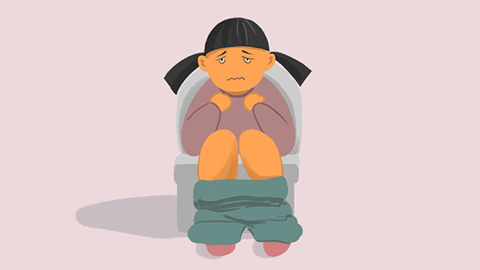What should I do if my hemorrhoid prolapses?
Generally, prolapsed hemorrhoids refer to hemorrhoidal prolapse, which may be caused by poor dietary habits, anal or rectal foreign bodies, pregnancy, chronic constipation, anal fissures, and other factors. It is recommended to seek timely medical attention, identify the underlying cause, and then undergo appropriate treatment under the guidance of a professional physician, which may include conservative management, medication, or surgical treatment. A detailed explanation is as follows:

1. Poor Dietary Habits
Poor dietary habits, such as excessive alcohol consumption or intake of spicy foods, may cause dilation of veins in the anal and rectal regions, increasing the risk of hemorrhoidal prolapse. Symptoms may include a burning sensation in the anus, pain or bleeding during bowel movements. It is recommended to adjust dietary habits and reduce the intake of alcohol and spicy foods. In severe cases, surgical treatment may be considered.
2. Anal or Rectal Foreign Bodies
If the anal or rectal mucosa is irritated by foreign bodies, such as undigested food residue or inserted objects, it may trigger hemorrhoidal prolapse. It is recommended to seek timely medical attention and have the foreign body removed under a physician's guidance.
3. Pregnancy
During pregnancy, as the fetus grows, the enlarging uterus may compress blood vessels within the pelvic cavity, increasing venous pressure in the anal and rectal areas, thus promoting the occurrence of hemorrhoidal prolapse. Symptoms may include anal discomfort, pain, or bleeding, particularly noticeable during bowel movements. It is recommended that pregnant women maintain moderate physical activity, avoid prolonged standing or sitting, consume more fiber-rich foods to ensure smooth bowel movements, and consider surgical treatment after childbirth if necessary.
4. Chronic Constipation
With chronic constipation, excessive straining during defecation increases abdominal pressure, worsening venous varicosities and ultimately leading to hemorrhoidal prolapse. Symptoms may also include difficulty in passing stools, hard stools, and abdominal distension. It is recommended to adjust the diet to increase fiber intake, drink more water to maintain regular bowel movements. If necessary, medications such as smectite powder, loperamide hydrochloride capsules, or bifidobacterium live capsules may be used under medical supervision.
5. Anal Fissure
Anal fissures refer to tears in the anal mucosa or skin, which may be caused by excessive local pressure. The inflammatory response and scar tissue formation during healing may lead to hemorrhoidal prolapse. Symptoms include severe pain during bowel movements accompanied by bleeding. It is recommended to maintain regular bowel movements and avoid straining during defecation. Surgery, such as fissurectomy, may be required if necessary.
When treating hemorrhoidal prolapse, appropriate treatment methods should be selected according to individual conditions. At the same time, maintaining healthy lifestyle habits and a positive mindset is important.









